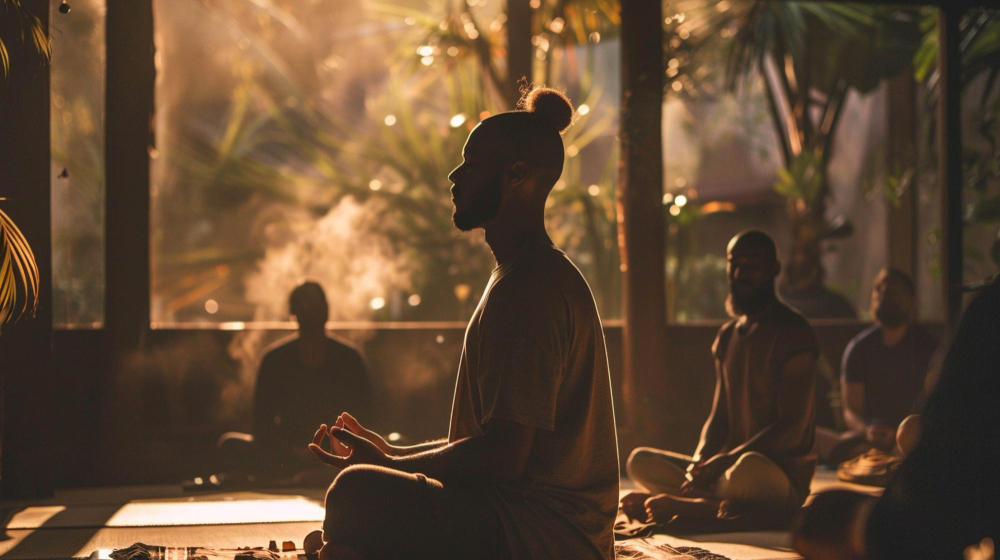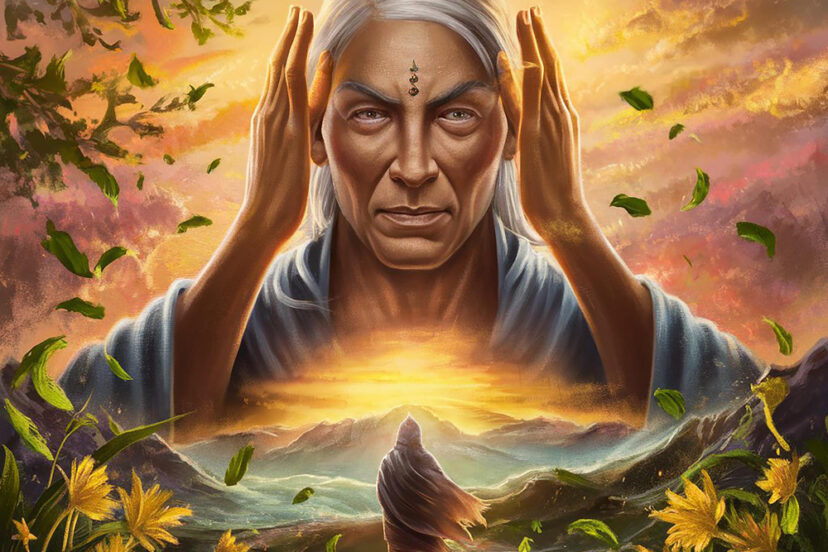Spiritual Teachers: Guiding Lights in a Complex World
Have you ever felt lost in the whirlwind of modern life, yearning for deeper meaning beyond the latest smartphone or social media update? You’re not alone. In our technology-driven world, more and more people are turning to spiritual teachers for guidance, wisdom, and a sense of purpose. These modern-day guides are like lighthouses in stormy seas, helping us navigate the complexities of contemporary existence while staying true to our inner compass.
Why We Need Spiritual Teachers Now More Than Ever
Picture this: You’re scrolling through your phone, bombarded by news alerts, work emails, and social media notifications. Your mind is racing, your anxiety is climbing, and you’re wondering, “Is this all there is to life?” This is where spiritual teachers step in, offering a lifeline to something deeper and more meaningful.
Today’s spiritual teachers aren’t hermits in caves or monks in distant monasteries. They’re accessible guides who understand our modern challenges. They show us how to find peace in a chaotic world, how to cultivate compassion in an often harsh environment, and how to discover purpose beyond the pursuit of material success.
Bridging Ancient Wisdom and Modern Life
Imagine having a wise friend who can take timeless spiritual truths and translate them into practical advice for your daily life. That’s what the best spiritual teachers do. They don’t just recite ancient texts – they help us understand how those age-old insights apply to our contemporary struggles.
Whether you’re dealing with digital overwhelm, relationship challenges, or career uncertainty, spiritual teachers can offer perspectives that blend the wisdom of traditions like Buddhism, Hinduism, or Christianity with a deep understanding of modern life’s demands.
The Rock Stars of Modern Spirituality
Eckhart Tolle: The Power of Now in a Future-Obsessed World
If you’ve ever caught yourself constantly worrying about tomorrow or replaying yesterday’s mistakes, Eckhart Tolle‘s teachings might be just what you need. This spiritual teacher has touched millions of lives with his simple yet profound message: the present moment is all we truly have.
Through books like “The Power of Now,” Tolle shows us how to break free from the prison of constant thinking and find peace in the here and now. His own journey from depression to spiritual awakening makes his teachings relatable and authentic.
Thich Nhat Hanh: Finding Peace in Every Step
The late Thich Nhat Hanh, lovingly known as “Thay” to his followers, brought mindfulness out of the monastery and into our everyday lives. This remarkable spiritual teacher showed us how even simple acts like washing dishes or walking to the bus stop can become profound spiritual practices.
One of his students once shared how Thay transformed their perspective on traffic jams. “Instead of getting frustrated,” they said, “he taught us to use that time to breathe, smile, and come back to ourselves. Now, red lights are my mindfulness bells!”
Pema Chödrön: Embracing Life’s Uncertainties
In a world obsessed with control and certainty, Pema Chödrön stands out among spiritual teachers for her radical message: embrace the chaos. This American Buddhist nun doesn’t just teach from books – she speaks from her own experiences of divorce, career changes, and personal struggles.
Through her warmth and humor, Pema shows us how life’s difficulties can be our greatest teachers. As one of her students put it, “Pema taught me that falling apart isn’t a failure – it’s an opportunity to rebuild ourselves with greater wisdom and compassion.”
What Modern Spiritual Teachers Offer Us
Practical Wisdom for Everyday Challenges
Today’s spiritual teachers aren’t just about lofty philosophy – they offer practical tools for real-life situations. Whether it’s dealing with a difficult coworker, managing anxiety, or finding balance in a busy schedule, these guides provide actionable advice rooted in spiritual wisdom.
For instance, spiritual teacher Sharon Salzberg teaches a simple loving-kindness meditation that can transform your morning commute from a stress-fest into a heart-opening practice. Instead of getting angry at the person who cut you off in traffic, you can silently wish them well: “May you be happy, may you be safe.”
Building Meaningful Connections
In our age of social media “friends” and digital connections, many spiritual teachers emphasize the importance of authentic human relationships. They create communities where people can come together, share their journeys, and support each other’s growth.
Sarah, a graphic designer from Portland, shares how joining a spiritual community changed her life: “I used to think spirituality was something you did alone on a meditation cushion. But my teacher showed me that connecting with others on the path makes the journey so much richer. The people I’ve met in my spiritual community have become like family.”
The Evolution of Spiritual Teaching
From Ashrams to Apps
Spiritual teachers have adapted to meet us where we are – often, that’s on our smartphones. While purists might scoff at meditation apps or online retreats, these modern approaches have made spiritual teachings more accessible than ever.
Take Jack Kornfield, a renowned spiritual teacher who now offers virtual retreats. “At first, I was skeptical about teaching meditation online,” he admits. “But I’ve seen how technology can create meaningful connections and support people’s practice, especially when they can’t travel to retreats.”
Social Media Spirituality: Navigating the Digital Dharma
As spiritual teachings move online, discernment becomes crucial. Not every Instagram guru with a large following is a genuine spiritual teacher. How can you tell the difference? Look for teachers who:
- Emphasize practice over performance
- Encourage questioning rather than blind faith
- Share their own struggles and humanity
- Have a lineage or established background in spiritual traditions
Challenges on the Spiritual Path
When the Teacher Becomes the Test
Following a spiritual teacher isn’t always smooth sailing. Sometimes, the greatest lessons come from challenging experiences with our guides. Jane, a long-time student of various spiritual teachers, shares her perspective: “I used to put my teachers on pedestals, expecting them to be perfect. When they showed their humanity – their flaws and mistakes – I felt betrayed. But eventually, I realized that was part of the teaching: everyone, even spiritual teachers, is on a journey of growth.”
Navigating the Marketplace of Spirituality
With spirituality becoming increasingly commercialized, how do we find authentic spiritual teachers amid the sea of self-help gurus and wellness influencers? Here are some guidelines:
- Trust your intuition
- Look for teachers who walk their talk
- Be wary of those who promise quick fixes or spiritual bypassing
- Observe how they handle criticism and challenges
- Notice if they encourage dependency or empower your own wisdom

Personal Stories of Transformation
Finding Light in Dark Times
Mark, a former Wall Street trader, shares how spiritual teachers helped him through a personal crisis: “I had it all on paper – the money, the status, the toys. But inside, I was falling apart. My spiritual teacher helped me see that true wealth isn’t in my bank account, it’s in my heart. Now, I still work in finance, but with a completely different perspective. I’ve found purpose beyond profit.”
From Skeptic to Seeker
Not everyone comes to spiritual teachers willingly. Lisa, a scientist, was initially skeptical of anything that couldn’t be proven in a lab. “I thought spiritual teachers were all about woo-woo nonsense,” she laughs. “But when my data-driven approach to life left me feeling empty, I reluctantly attended a retreat with a well-known teacher. To my surprise, their teachings were practical, grounded, and often aligned with psychological research. Now, I see how science and spirituality can complement each other.”
Finding Your Own Path
The Teacher Within
While external spiritual teachers can provide invaluable guidance, many remind us that the ultimate teacher lies within. As the Buddha reportedly said, “Be a light unto yourself.” Modern spiritual teachers often emphasize this point, encouraging students to develop their own wisdom and discernment.
Creating Your Spiritual Toolkit
Different spiritual teachers offer various practices and perspectives. The key is finding what resonates with you and creates positive changes in your life. Some popular tools from modern spiritual teachers include:
- Daily meditation practice
- Mindful movement (yoga, qi gong, walking meditation)
- Journaling and self-reflection
- Compassion practices
- Mindfulness in daily activities
The Future of Spiritual Teaching
As we move further into the 21st century, the role of spiritual teachers continues to evolve. While the core teachings remain timeless, the methods of transmission are adapting to our changing world. Virtual reality meditation spaces, AI-assisted practice tracking, and global online communities are just the beginning.
Yet, amidst all this innovation, the heart of the teacher-student relationship remains the same: the transmission of wisdom, compassion, and awakening from one human being to another.
The Ongoing Journey
In a world that often feels disconnected and chaotic, spiritual teachers serve as guides, friends, and mirrors on our journey of awakening. They remind us that beneath our busy minds and digital distractions lies a deeper truth – a wellspring of peace, wisdom, and compassion that is our birthright.
Whether you’re a seasoned practitioner or just beginning to explore spirituality, remember that the path is not about reaching a destination. As many spiritual teachers remind us, it’s about waking up to the journey itself, finding meaning and growth in every step, every breath, every moment.
As you continue on your path, may you find the spiritual teachers and teachings that resonate with your heart and support your awakening. And may you discover, as countless others have, that the greatest teacher of all might just be the one you meet in your own mirror.
Want to dive deeper into the world of spiritual teachings? Start with these practices:
- Set aside 5 minutes each day for quiet reflection or meditation
- Read works by different spiritual teachers to find what resonates
- Join a local or online spiritual community
- Practice mindfulness in daily activities
- Keep a journal of your spiritual journey
Remember, the path of spirituality is deeply personal. Let your heart guide you to the teachers and teachings that support your growth and awakening.
We may earn a commission for purchases made using our links. Please see our disclosure to learn more.




